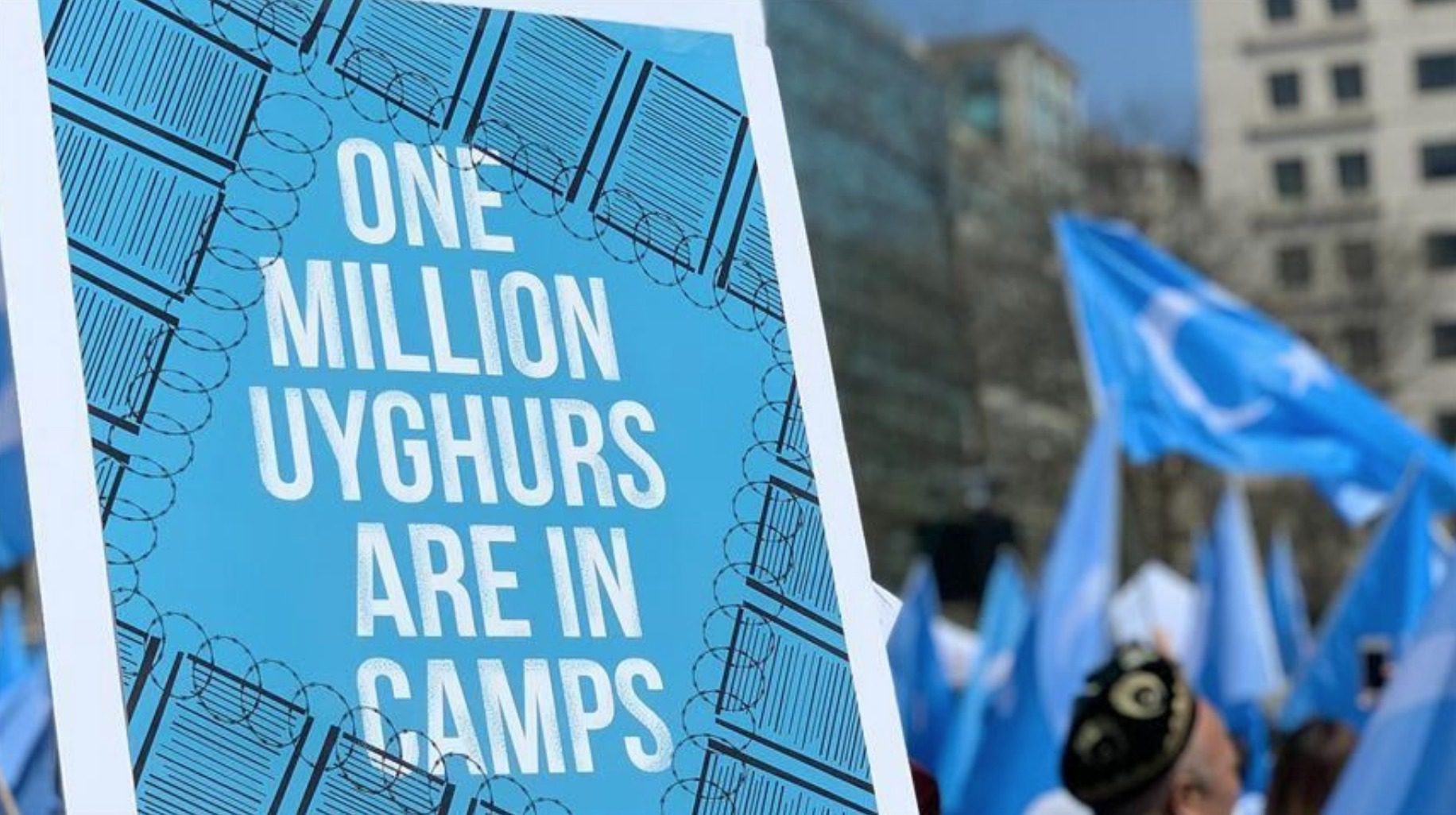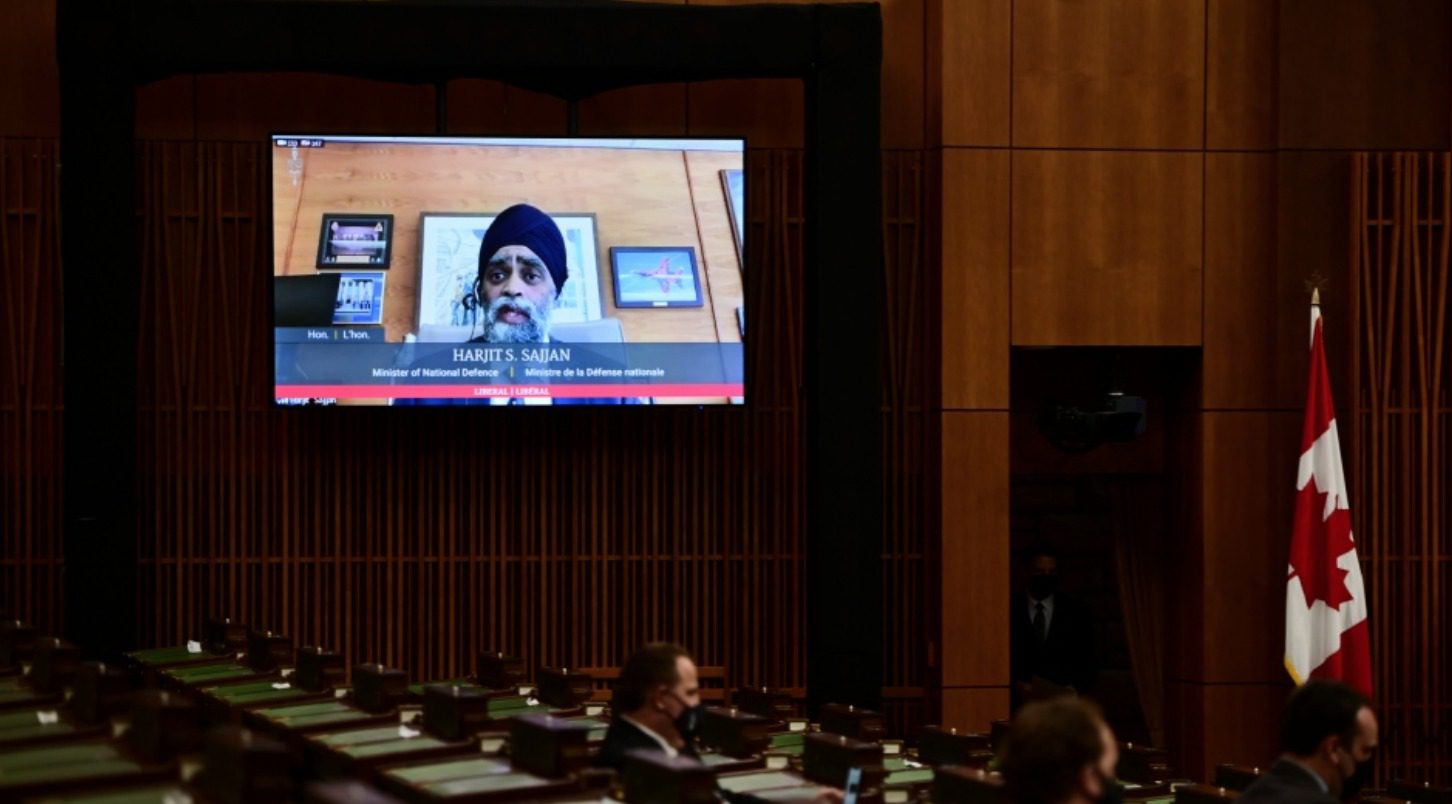Book review: Bootstraps Need Boots: One Tory's Lonely Fight to End Poverty In Canada
by Hugh Segal
On Point Press (an imprint of UBC Press), 2019
————————-
The concept of a basic income that is, providing every person with a financial foundation to ensure nobody suffers from want has gained considerable traction in recent years. However, proponents hail almost exclusively from the political left. Why, then, has one of Canada's most thoughtful conservatives championed a basic income relentlessly for more than half a century?
This is the topic explored in Bootstraps Need Boots, a recent book written by former senator and Progressive Conservative political advisor Hugh Segal.
Bootstraps Need Boots is structured primarily as a memoir that begins from Segal's childhood, focusing on the experiences that contributed to his enthusiasm for eliminating poverty. But the book is somewhat genre-defiant, as it avoids lusting after the drama of politics and instead expends considerable energy explaining the potential benefits of a basic income. Segal expresses disbelief that after several decades of consideration, Canada has somehow still avoided adopting what he argues would be an obvious improvement to our society and economy.
Segal also yearns nostalgically for a bygone era in which Conservative politicians sought to achieve a better future through grand planning. While the political left's Tommy Douglas is credited for championing social healthcare, Bill Davis of the political right deserves most of the plaudits for Canada's guaranteed income supplement for seniors. Ontario was an incredibly progressive province under premiers Robarts and Davis despite their blue political tinge, constructing several public universities, teachers' colleges and community colleges; creating GO Transit commuter rail; ensuring tuition fees weren't a barrier for low-income students seeking a post-secondary education; and launching TVOntario, the first educational television channel in Canada. It was also the Tories who established public utility Ontario Hydro, some 115 years ago.
To further the point, it's worth remembering that when Canadian provinces began to establish medical insurance programs as of the mid-1960s, half of the provinces adopted such publicly-funded healthcare under right-leaning governments.
Segal's brand of Toryism stands in stark contrast to the government-loathing, Thatcheresque politicians of today who seem capable only of tearing down, rather than building. According to Segal, conventional conservatism is just as interested in egalitarianism and communitarianism as the political left. He defines his political philosophy as "a politics that sees as unacceptable the vast difference between those living happy, well-funded lives of travel and luxury and a sub-culture in which people are denied enough to eat, indoor plumbing, time for family, or any enjoyment at all. A Tory respects tradition and the rule of law but sees the reduction of the gap between rich and poor as essential to his or her mission."
The author is a rarity: a Conservative who walked the corridors of provincial and federal power despite originating from a family that often struggled with poverty. This is what makes his conclusions so captivating: he's not lecturing the poor with condescending "if only you'd worked harder" tropes we so often hear from right-wing politicians who inherited wealth.
Eradicating poverty is simple: give people money
Segal's central argument in favour of Canada adopting a basic income is as follows: poverty is expensive, preventing people from living productive and fulfilling lives; more than three million Canadians fall beneath the poverty line; welfare and disability supports trap people in poverty, rather than liberating them; government tinkering at the peripheral symptoms of poverty with an array of constantly-shifting social programs achieves surprisingly little, while costing a lot; a basic income could quickly and directly lift people from poverty; and unlike welfare a basic income would actually incentivize work.
Canada already spends a surprising amount of money attempting to support people in poverty, but as Segal argues, it achieves little and is indeed often counter-productive, ensnaring recipients in a state of perpetual poverty. Considering that Ontario alone already spends almost $10 billion each year on welfare and disability supports, while a basic income program similar to Ontario's recent pilot would cost just $43 billion annually if rolled out across the entire country, the reader quickly appreciates that cost is not the major barrier to eliminating poverty in Canada.
If a basic income still seems excessive, Segal points out that Canada already uses it just not a universal program. The guaranteed income supplement which, again, originated from Conservatives cut poverty among seniors in Ontario from 35 percent down to just five percent in only two years. The Canada child benefit, implemented in 2016, quickly lifted many low-income families out of poverty. If we genuinely wish to liberate people from want, the solution is simple: give them money.
Segal argues that a basic income is inherently conservative: give people money and let them choose what to do with it, rather than government spending a similar amount creating a bureaucracy-laden array of support programs of dubious value. Enable poor people to pay their rent or buy food with that money instead. Poverty and its myriad pathologies are ultimately caused by a lack of cash, so we should simply distribute money more widely if we really want to lift Canadians from poverty.
Preventing families from subsisting in Dickensian destitution might sound all well and good, but a basic income would make people lazy and disincentivize work, critics argue. In reality, pilot programs conducted across the world have shown that not to be the case. On average, people worked slightly more when they received a basic income, and entrepreneurialism increased. If thoughtful Canadians seek government that makes decisions based on data rather than bias and ideology, very few arguments against introducing a basic income remain.
Without dancing astray from the book's core objective, Segal also makes a clarion call for Canadian conservatism to increase its appeal by returning to its roots, focusing on increasing equality of opportunity rather than an obsession with less government. The author paints a compelling argument for Red Tories to take back their party from Reformers, having lost control after the 2003 merger between Progressive Conservatives and the Canadian Alliance.
Texan accents, "swells" and unanswered questions
But is Segal's book a captivating read? The concept of exploring how an intellectual Tory came to support a policy generally considered left-wing is intriguing, but it makes for a project that's challenging to execute entertainingly. Segal partly succeeds, opting to tell stories and share anecdotes where possible. He wields a deliciously dark sense of humour that we get occasional glimpses at, and has concocted a political memoir that is refreshingly self-deprecating.
But frankly, parts of the book drag for the reader: describing meetings or interactions with bureaucrats and other officials isn't exactly gripping drama, even if it's a necessary aspect of the book's journey. Delving into the October Crisis and the Front de libération du Québec makes chapter nine a page-turner, as is the concluding chapter. But much of the book lacks a sense of urgency.
To Segal's credit, he keeps most chapters and the overall book rather short, and uses accessible language that ensures approachability for general readers. Academics from the social sciences are often guilty of using heavily verbose language to adorn simple assertions, but that's thankfully not the case from this book, despite being released by an academic publisher.
One confusing matter central to the book's objective that isn't successfully clarified is why Segal opted to become a Conservative rather than join the left-wing New Democrats, if poverty alleviation was his primary political motive. We receive part of the story: he mentions becoming enthralled by a John Diefenbaker speech at his school, and his political awakening occurred during an era when the Red Tories who wielded power had few inhibitions about nation building or constructing social programs. But Segal's father was Liberal, and his grandfather an NDP ideologue. So why did Segal come to hold distain for the "far left" students he encountered at university? Which events or interactions subsequent to meeting Diefenbaker cemented Segal's identity as a Tory? He would have been exposed to plenty of left-wing ideas about curtailing poverty, even at his own family's dinner table, yet chose to reject them. But why? Sadly, this crucial part of his formative political story is left unexplained.
As thoughtful and open-minded as Segal generally appears compared to many of his right-wing peers, one annoyance for non-Conservative readers stems from the occasional partisan jabs he makes at Liberals and the political left, as well as petty shots directed toward the civil service and unions. Such right-wing tropes risk alienating readers from the book's important message about a basic income. Several instances are perhaps necessary to explain how the author came to formulate his world view, but these needn't drip with condescension. The unintentional irony is obvious as Segal refers to Pierre Trudeau as "the trust-fund-based dilettante" in the same chapter he praises mentor David MacDonald for eschewing hyper-partisanship. Segal also contradicts himself as he casts venom toward the civil service, referring to bureaucrats as "swells" only interested in "protect[ing] their own jobs", yet elsewhere in the book commends Ontario government workers for their professionalism.
Because the book rigidly adheres to the scope of explaining how Segal's experiences contributed to his views on alleviating poverty through a basic income, some of his fascinating roles in high political office receive scant attention. For example, if you're looking for Segal to pull back the curtain on his time as Brian Mulroney's chief of staff, only seven pages are devoted to that period, and half of it specifically to Segal's basic income efforts. For readers who seek dramatic political memoir, Segal's No Surrender: Reflections of a Happy Warrior in the Tory Crusade (HarperCollins Canada, 1996) would better scratch that itch.
Despite that many fascinating posts in Segal's career are scarcely covered, others parts of the book arguably contain unnecessarily excessive detail. Do we really need to know the name of the shop where Segal printed a policy brochure in 1970, or that the owner had a Texan accent? Such specifics perhaps add to a bit of colour and tell a fuller story to what's otherwise a policy-heavy manuscript, but it seems odd to gloss over some of Segal's top career positions in favour of trivial facts perhaps only of interest to the author. Segal also has a habit of dropping names not to brag about his extensive professional network, but rather to give credit to others. Normally that should win someone praise, but most readers probably aren't interested in the names of Segal's opponents from student council elections a half-century ago. These details belong in footnotes or endnotes, if they're needed at all.
The number of Tories who are singled out for criticism from Segal is surprisingly short. Even though he bemoans how modern conservatism has replaced nation and community building with selfishness and an obsession with privatization, he is really only critical of one specific Conservative politician: Doug Ford. Perhaps this can be partly excused by the book adhering to the topic of poverty alleviation, as Ford infamously terminated Ontario's basic income pilot pre-maturely despite promising not to, a duplicitous act Segal fumes over. But somehow there isn't a single mention of former Ontario premier Mike Harris in the entire book despite his legacy of slashing social services, and yet Segal finds space to criticize Paul Martin for similar austerity, even though the former Liberal prime minister appointed Segal to the Senate. He also bestows very gentle treatment on Stephen Harper, despite incompetent meddling in Senate matters. Again, the reader occasionally wonders if they're wading through a partisan manuscript, a dangerous outcome if Segal hopes to appeal across the political spectrum.
Several critics have remarked that Segal has not specified in Bootstraps Need Boots whether a basic income would complement existing social programs or replace them, a reason why some on the political left remain suspicious of a basic income. But frankly, it's not his responsibility to do so. That's up to whichever future government entertains adopting such a program. And as Segal helpfully notes, the Canada child benefit implemented in 2016 replaced a series of pre-existing programs, yet didn't decrease any individual family's benefits. Future governments could easily eliminate fears of program replacement by guaranteeing that no household's benefits would decline as the result of adopting a basic income.
The conservative appeal to eradicate poverty
Overall, Segal has written a provocative book in an engaging style. He dispenses erudite wisdom, masked with a folksy tone and self-deprecation to make what could have been a dry, policy-heavy manuscript instead palatable to a general audience.
As to whom Bootstraps Need Boots will appeal to most, there are three camps. First, people who seek social justice: those who campaign against poverty, particularly anyone interested in a basic income. Second, this book should fascinate open-minded conservatives who enjoy the intellectual stimulus of having their assumptions challenged, as well as Tories who simply can't fathom how one of their own could support a basic income. But the third sub-audience is much wider: those from across the political spectrum who yearn nostalgically for the political right to once again offer more to society than yet another round of incessant, Thatcherite cuts. It's incredibly refreshing to read from a Conservative who wants more social programs not less and can adeptly articulate how such a philosophical realignment would better match traditional conservative values than today's bleak offerings of austerity. Intelligent Tories especially younger ones reading this book may find themselves in disbelief how their political movement veered so far off course in recent decades.
Ultimately, Segal makes a compelling case with a conservative ethos that society would flourish with the addition of a basic income, and that we're letting fear of change and ideological stubbornness prevent us from both stimulating the economy and allowing people to reach their full potential.
For readers hoping to delve into the details of what a basic income program might look like, Evelyn Forget's Basic Income for Canadians (Lorimer, 2018) would prove more relevant. But Bootstraps Need Boots is perhaps the most profoundly conservative argument yet in favour of Canada adopting a basic income, and is thus a welcome and much-needed addition to existing literature.
Photo Credit: Basic Income Canada Network
The views, opinions and positions expressed by columnists and contributors are the author’s alone. They do not inherently or expressly reflect the views, opinions and/or positions of our publication.










